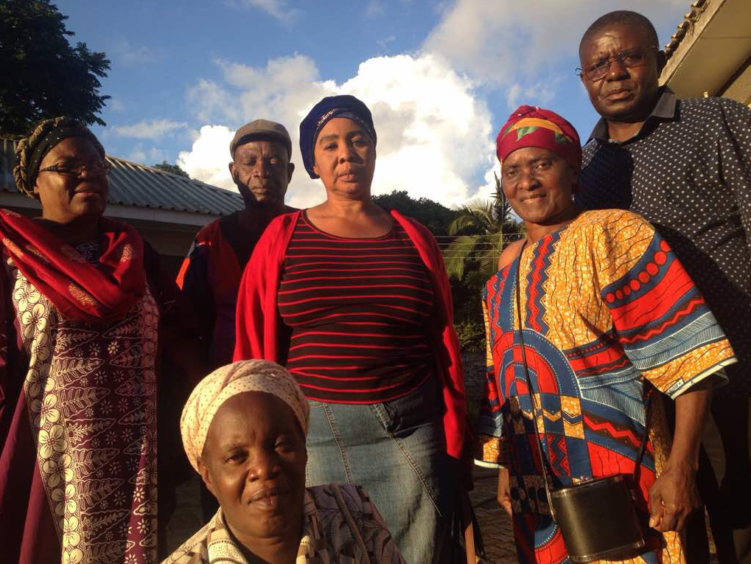
When BP sold off its Zambian fuel marketing business in 2010 to Puma Energy, it appeared to be a fairly straightforward example of a super major dispensing with non-core assets.
For former employees of BP Zambia, though, it marked another setback in their struggle to win recognition for pensions earned.
As BP’s new CEO Bernard Looney has set out his thoughts on tackling racial injustice and a desire to help the world “build back better”, the case of ageing Zambian pensioners appears ripe for re-examination. BP denies it has any remaining liability under the case, saying that “any outstanding claims sits with the owner, Puma Energy”.
Puma said it could “confirm that this BP Pensions issue commenced during the ownership and operation of the business by BP; and was before the courts at the time of the completion of the acquisition.
“We operate transparently in every market in which we carry out business. We have been working diligently with all parties following the existing and ongoing court processes and we are co-operating fully with the local Supreme Court to secure an outcome guided by the courts,” said a Puma representative.
“We are awaiting a final determination of the issues in dispute by the courts to determine the allocation of funds to the beneficiaries, as per the directive of the courts.”
In the sale document, the seller declared there were no “material claims, actions or disputes” on the pension scheme.
The case is fairly convoluted, with legal cases and accusations of political interference. At the heart of the story, though, is a group of people who have been neglected for a long time with no access to the money they seem to be owed.
Slow progress
There had originally been 236 of the BP Zambia employees in line for a pension, but of those around 100 have died. These employees had lost their jobs at BP Zambia between 1993 and 1999.
The pension fund was transferred in the early 1990s from Zambia State Insurance Corp. to Saturnia Regna. Employees said they had not been informed of the move. When the time came for former employees to claim their pensions, the money was not provided.
The pensioners have won four legal cases, in 2010, 2014, 2016 and 2018. No progress has been made on paying out money to the pensioners.
“British Petroleum International are legally and morally bound to settle the claim if they believe that the black Africans who worked for them were human beings who deserved the same treatment that was given to the Britons who worked for the company in Zambia,” said Expendito Chipalo, who has led the campaign against BP.
Looney’s comments in response to protests in the US over racial inequality set out the aim of “restarting the global economy in a fairer way”. The BP CEO said the way forward would be “more inclusive, sustainable and resilient. These are efforts aimed at trying to get to the root of deep inequities that exist in our society”.
He went on to list access to the basics, such as education, as a way of healing divisions.
“We take our responsibilities to our staff and pensioners seriously and are committed to treating everyone with fairness, respect and dignity,” said BP representative David Nicholas. The company became aware of the dispute in the 1990s. It appointed an independent actuarial consultant in 2000 to examine the case.
“We understand that since our exit there may have been further legal challenges in Zambia – we were not a party to these cases. We have previously – in 2018 – advised representatives of the claimants that Puma Energy are now responsible for the former BP Zambia and also provided them with appropriate contacts in Puma,” continued Nicholas.
The dispute continues to be heard in court. A hearing was due to be held at the end of March but has been pushed back as a result of coronavirus.
Costs
The human cost of the Zambian shortfall has been notable. The pensioners have been unable to pay for the education of children or healthcare. This has taken its toll on former employees and their families.
The amount owed is $42.23 million, according to the campaign seeking compensation.
The campaign for has appealed for help from Lord John Browne, who was the head of BP from 1995 to 2007.
There is a petition under way seeking to pressure BP into paying out to the Zambian pensioners.
Saturnia Regia has been repeatedly linked with opposition politician Hakainde Hichilema. He has denied holding an interest in the company. Chipalo has expressed a concern that, should Hichilema win the elections in 2021, the pensioners will never be paid.
Lord Browne, Saturnia Regia and Zambia’s opposition United Party for National Development (UPND) have not responded to requests for comment.
Updated on July 1 at 8:45 am with comment from Puma.
Recommended for you

